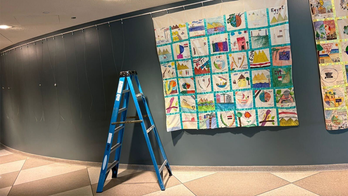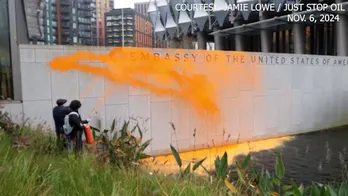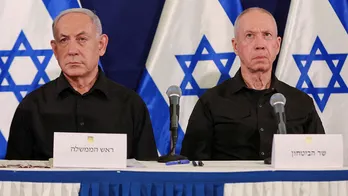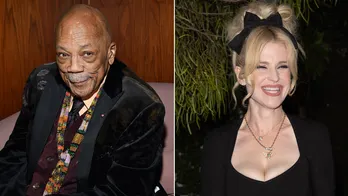How ancient seeds in Lebanon could help us adapt to climate change
Inside a large freezer room at the International Center for Agricultural Research in the Dry Areas, tens of thousands of seeds are stored at a constant temperature of minus-4 degrees Fahrenheit.
The gene bank can hold as many as 120,000 varieties of plants. Many of the seeds come from crops as old as agriculture itself.
NPR's Middle East correspondent Ruth Sherlock has been looking into why some scientists are now turning to the seed bank for in search of agricultural breakthroughs. It turns out, some of them may hold keys to helping the planet's food supply adapt to climate change.
The research center, formed in the 1970s, once mostly helped farmers in poorer countries in hot, dry climates. But now it also sends seeds to scientists in Europe, Canada and the United States. Around the world, scientists are using the seeds to explore a variety of lines of research. Among them, answers to crop fragility.
Crops that have been genetically engineered by humans for mass, industrial agriculture are incredibly vulnerable to pests and changes in weather like climate change. To shore up food security, scientists are studying the ICARDA seeds.
Already, ICARDA seeds have done just that — improved food security — in several countries. They have transformed Ethiopian agriculture to use more drought-resistant crops. And a new chickpea can be planted in winter.
"Most of the experts I've spoken with agree that you can't and shouldn't completely do away with industrial agriculture because the human population is growing at such a rate that it's needed," says Sherlock. "But they say what these seeds - the wild original species of crops and varieties from early agriculture offer an incredible richness and diversity."
Thousands of seed varieties in the bank have yet to be tested. So scientists hope this may be just the beginning of a long line of breakthroughs.
Listen to Short Wave on Spotify, Apple Podcasts and Google Podcasts.
Curious about other potential climate solutions scientists are researching? Email us at shortwave@npr.org.
This episode was produced by Liz Metzger with help from Margaret Cirino. It was edited by Rebecca Ramirez. Brit Hanson and Anil Oza checked the facts. The audio engineer was Joby Tanseco. Special thanks to Jawad Rizkallah, who helped produce this story in Lebanon.
Disclaimer: The copyright of this article belongs to the original author. Reposting this article is solely for the purpose of information dissemination and does not constitute any investment advice. If there is any infringement, please contact us immediately. We will make corrections or deletions as necessary. Thank you.







